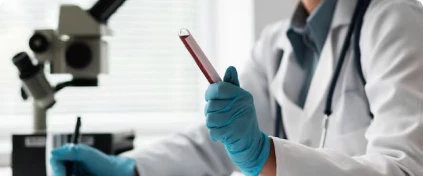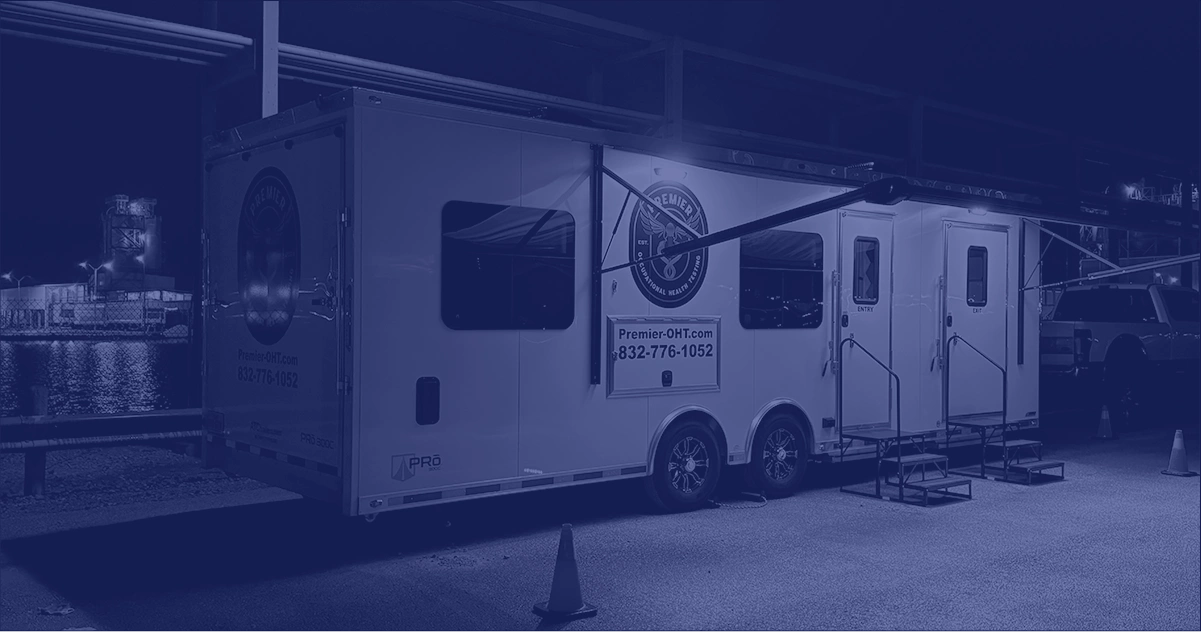Industrial medical testing is a critical component of occupational health and safety. It plays a pivotal role in ensuring the well-being of the workforce.
However, traditional testing methods often fall short. They may be time-consuming, invasive, or inaccurate, posing challenges for safety managers.
The good news is, advancements in technology are revolutionizing this field. New techniques are emerging that promise faster, more accurate, and less invasive testing.
This article explores these advancements in industrial medical testing techniques. It delves into how they can help safety managers implement effective safety measures, ensure regulatory compliance, and foster a culture of safety.
By understanding these advancements, safety managers can better protect their workforce. They can reduce workplace accidents and promote health, leading to a safer, more productive work environment.
Join us as we delve into the future of industrial medical testing and its potential to transform occupational health and safety.
The Importance of Industrial Medical Testing in Occupational Health
Industrial medical testing serves as a cornerstone in safeguarding employee health. It aids in detecting potential health risks before they escalate. Early detection of health issues can prevent serious work-related illnesses and injuries.
Employers who prioritize medical testing demonstrate their commitment to employee well-being. This commitment can boost morale and trust within the workforce.
Moreover, these tests are essential for aligning with health regulations. They ensure companies remain compliant, avoiding fines and legal repercussions.
Ultimately, industrial medical testing is an investment in a healthier, more productive workforce. It promotes a safer working environment and enhances overall organizational efficiency.
Traditional vs. Advanced Testing Methods
Traditional medical testing methods often involve lengthy procedures. They can be inconvenient, causing disruption in daily operations. With advancements, new methods are emerging that streamline these processes.
Advanced testing techniques offer greater accuracy and speed. For instance, modern blood tests can detect markers quickly and effectively.
Moreover, these new methods are less invasive. They reduce discomfort for employees and minimize downtime. As a result, employees are more likely to comply with testing requirements.
By embracing these advanced techniques, companies can improve their occupational health strategies. They ensure a more seamless and efficient process, enhancing safety outcomes.
Regulatory Compliance and Risk Management
Ensuring regulatory compliance is crucial for businesses. Compliance helps avoid costly penalties and legal issues. Industrial medical testing plays a key role in this.
By adhering to testing regulations, companies demonstrate their commitment to safety. This fosters a culture of accountability and risk management.
Regular testing helps identify potential health risks early. Early identification allows for timely interventions, reducing liability.
Overall, integrating medical testing into safety protocols reinforces a proactive compliance strategy. It positions businesses as leaders in occupational health.
Reducing Workplace Accidents Through Testing
Industrial medical testing significantly reduces workplace accidents. By identifying health risks, employers can act before issues arise.
For example, vision and hearing tests can prevent accidents in high-risk environments. Regular testing enhances awareness of potential health-related impairments.
These measures help employees perform at their best. When employees operate safely, accident rates decrease.
Thus, a robust testing program benefits both workers and the company. It fosters a safer and more efficient work environment.
Technological Innovations in Industrial Medical Testing
Advancements in technology have transformed industrial medical testing. These innovations enhance accuracy, speed, and reliability. Consequently, businesses benefit from improved health outcomes.
New technologies streamline processes and provide timely information. Automated systems reduce human error and ensure consistent results.
Below are some key technological advancements shaping industrial medical testing:
- Artificial Intelligence (AI): AI analyzes complex data swiftly, identifying health trends.
- Wearable Devices: Track vital signs and detect early signs of health issues.
- Mobile Testing Units: Bring testing directly to workplaces, increasing participation.
Embracing these innovations helps companies maintain robust safety programs. They ensure early detection and intervention for potential health risks.
Overall, integrating cutting-edge technology is crucial for modern occupational health strategies.
Digital Health Records and Data Management
Managing health data efficiently is vital in industrial medical testing. Digital health records offer streamlined data management. They ensure accurate and secure access to employee health information.
These records improve communication between healthcare providers and employers. Quick access to information facilitates better decision-making.
Digital systems also support long-term health tracking. They allow for data comparisons over time.
Enhanced data management leads to more informed health interventions. It ultimately strengthens workplace safety strategies.
Mobile Testing Units and Accessibility
Mobile testing units revolutionize accessibility in medical testing. They bring services directly to employees at their work site. This eliminates the need for time-consuming off-site visits.
These units enhance participation rates and ensure comprehensive testing coverage. On-site availability minimizes disruptions to work schedules.
Employers benefit from more flexible testing options. They can easily accommodate the diverse schedules of their workforce.
Overall, mobile testing units increase the convenience and efficiency of industrial medical services. They make maintaining employee health simpler and more effective.
Telemedicine and Remote Assessments
Telemedicine offers a modern approach to industrial medical services. It provides remote assessments, connecting employees with healthcare professionals virtually. This improves access to medical expertise regardless of location.
Remote consultations are convenient and often quicker than in-person visits. They reduce wait times and travel costs for employees.
Incorporating telemedicine also broadens the scope of medical services available. Specialists can offer advice without geographical barriers.
By adopting telemedicine, businesses can enhance their occupational health programs. They offer timely assessments, contributing to proactive health management.
Artificial Intelligence and Machine Learning in Test Analysis
The role of artificial intelligence in industrial medical testing is growing rapidly. AI processes complex medical data swiftly, offering valuable insights.
Machine learning enhances the accuracy of test analysis. It identifies patterns that might be missed by traditional methods.
These technologies reduce the time needed to diagnose potential health issues. They provide early warnings, allowing for faster interventions.
Incorporating AI and machine learning elevates the effectiveness of occupational health efforts. They ensure data-driven decisions that enhance workplace safety strategies.
On-Site Industrial Medical Services and Immediate Results
On-site industrial medical services offer significant advantages. They enable prompt testing, minimizing downtime for employees. Immediate results allow for swift action in case of health issues.
This approach enhances trust between employers and employees. Workers appreciate the convenience and speed of on-site services.
On-site testing also reduces logistical challenges. There’s no need for employees to travel offsite for medical checks, saving both time and resources.
These services are tailored to the specific needs of the workplace. They help maintain a safe work environment while ensuring compliance with health standards.
The Role of Wearable Technology in Monitoring Health
Wearable technology is revolutionizing workplace health monitoring. Devices like fitness trackers can offer real-time health data, improving awareness.
These gadgets help detect early signs of fatigue or stress. This can prevent workplace accidents and promote employee well-being.
Wearables encourage proactive health management. They enable employees to take control of their own health, aligning with organizational safety goals.
The integration of wearable tech supports a culture of safety. It highlights an employer’s commitment to innovative health solutions, enhancing morale and productivity.
Customizing Testing Programs to Industry Needs
Tailoring medical testing to industry-specific needs is crucial. Different industries present unique health risks and exposure challenges. Custom programs address these specific concerns effectively.
A well-designed testing program considers workforce demographics. Understanding age, gender, and job roles ensures comprehensive health monitoring.
Employers should collaborate with healthcare professionals. This partnership guarantees that testing protocols are both practical and relevant.
Custom testing programs also streamline compliance. They ensure adherence to industry regulations while promoting a safer work environment.
Case Studies: Effective Industrial Medical Testing in Action
Real-world examples highlight the impact of advanced testing. In a manufacturing firm, tailored testing reduced workplace incidents by 30%. Early detection of hearing loss among workers was key.
Another case involves a construction company. Implementing mobile testing units identified respiratory issues early, cutting sick leave by 20%.
In the healthcare industry, wearable tech enhanced staff performance. Continuous monitoring led to fewer burnout cases among employees.
These successful stories showcase the benefits of specific industrial medical solutions. They underline the importance of strategic health partnerships.
The Future of Industrial Medical Testing
The future of industrial medical testing is promising. Emerging technologies will shape more efficient and comprehensive processes. Companies will need to adapt to these changes for continued success.
Predictive analytics will be key. This technology can foresee health issues before they arise, allowing proactive measures.
Wearable technology will advance further. It will offer real-time health data, enhancing workplace safety programs.
Future trends also include greater integration with wellness programs. This holistic approach supports both physical and mental health.
Future Advancements to Anticipate
- Broader use of AI to streamline test analysis.
- Enhanced telemedicine capabilities for more remote assessments.
- Greater emphasis on customization to fit diverse workforce needs.
Continuous Improvement and Staying Updated
Continuous improvement is essential in industrial med testing. New developments demand a proactive approach to remain relevant.
Safety managers must keep learning. Regular training and updates ensure knowledge of cutting-edge practices.
Networking with industry peers is valuable. Sharing insights about new methodologies promotes collective growth.
Staying informed fosters a culture of safety. It equips organizations to better manage health risks and safeguard employees effectively.
Conclusion: Embracing Advancements for a Safer Workplace
Advancements in industrial medical testing offer vast benefits. By adopting these technologies, organizations improve safety outcomes.
A safer workplace is within reach. New testing methods enhance early detection of health issues, preventing accidents.
Employers play a critical role in embracing innovation. Investing in state-of-the-art testing technologies demonstrates commitment to workforce wellbeing.
Adapting to these advancements is not just smart; it is necessary. As technology evolves, staying ahead ensures both compliance and a competitive edge. Embracing these changes helps create a healthier, more productive work environment, benefiting everyone involved.



